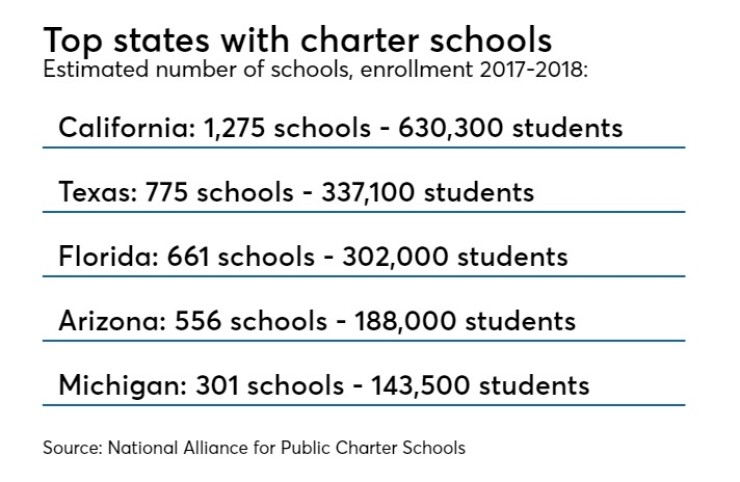A hearing date has been set in a legal challenge to a proposed constitutional amendment that would allow Florida’s charter schools and other educational facilities to be approved by agencies other than school districts.
Leon County Circuit Court Judge John Cooper has scheduled a hearing Aug. 17 in the complaint filed by the League of Women Voters of Florida, whose president contends that the language in proposed Amendment 8 is “blatantly, and unconstitutionally, misleading.”
The problem, according to the League’s July 12 lawsuit seeking to strip the amendment from the November ballot, is that six words in the measure affecting charters schools don’t convey the real meaning behind a portion of the amendment.

The wording would open the door for the approval of charter and other innovative schools by authorizing agencies other than Florida's 67 public school districts. At present, charters must be authorized by school districts, whose elected boards also approve public school budgets and set property tax rates.
The League’s suit is one of four challenging different amendments placed on the November general election ballot by the Constitution Revision Commission, a panel that is convened every 20 years to propose changes to the state constitution.
The pending suits should be settled by Sept. 22 to remain on the ballot. That is the date county election supervisors must mail absentee ballots to Florida residents and ballots going to people and service members who are overseas, according to the Florida Division of Elections.
In addition to the League of Women Voters’ suit challenging Amendment 8, former Florida Supreme Court Justice Charles T. Wells has penned an
The amendment contains three separate education proposals, a combination known as logrolling.
At the same time voters would be asked to change how public schools are approved, the question also asks voters to approve term limits on school district board members and to require that civic literacy be taught in schools.
“The deceptive packaging of the three amendments is not the only flaw which causes me to oppose Amendment 8,” Wells wrote in his opinion, which was sent to the League and the Tampa Bay Times. “In addition to that flaw…the title and summary for that part of Amendment 8 are plainly inaccurate and misleading.”
It is the middle question in the logrolled ballot amendment that Wells said he opposes the most.
It would add the following six underlined words to the constitution: "The school board shall operate, control, and supervise all free public schools established by the district school board within the school district and determine the rate of school district taxes within the limits prescribed herein."
“This significant change from local county school board control and operation of all free public schools is hidden by packaging the change with what are thought to be attractive proposals for term limits and civics education,” Wells said. “In reality, the terms limits and civics education proposals are only bait to attract voters to vote yes for Amendment 8.”
Wells said packaging of the three proposals in Amendment 8 “without question fails the truth in packaging requirement,” a standard established by a case known as Armstrong v. Harris.
On Wednesday, in a separate lawsuit, Leon County Circuit Court Judge Karen Gievers agreed to take Amendment 13 off the ballot. It’s the only amendment proposed by the Constitution Revision Commission that addresses a single subject.
Although purportedly aimed at banning greyhound dog racing in Florida, Geivers said Amendment 13’s title and summary wording were “misleading and inaccurate and incomplete,” a conclusion that was argued by the Florida Greyhound Association in bringing the suit.
“Contrary to the words presented for consideration by the voters, the amendment would not end dog racing, nor would it eliminate wagering on dog racing,'' Gievers said. Race tracks could still allow betting on dog races broadcast from outside the state.
Amendment 13 supporters said they plan to appeal the ruling to the Florida Supreme Court.




